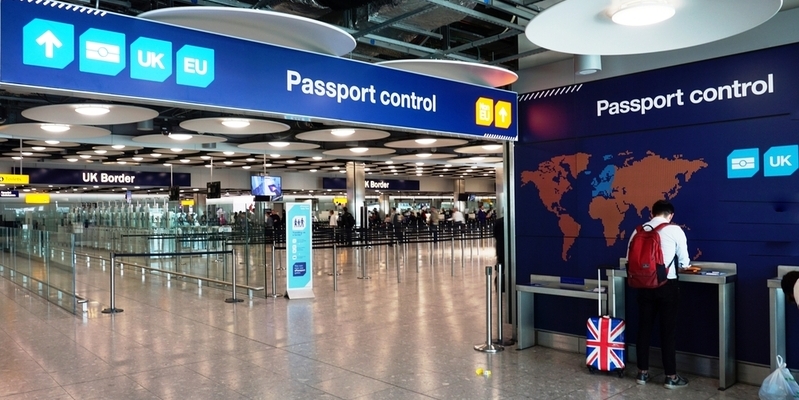
Planning a trip to the UK for private medical treatment? Whether you're visiting for a consultation, a course of treatment, or surgery, it’s essential that you have the right visa or travel document for your trip.
In this post, you can find information on how to get a medical visa for the UK, what you’ll need to apply, and general advice on visiting the United Kingdom for healthcare.
Healthcare in the UK for foreign visitors
You can travel to the UK for many types of medical therapies or health-related appointments, including:
- Aesthetic treatments and operations
- Consultations with specialists for prospective treatment
- Dental care and surgeries
- Psychological and counselling services
- Therapies and treatments for ongoing health conditions
You’ll need to ensure you can pay for your treatment or consultation. It’s crucial that you also carry the right type of visa or entry permit for the UK, if you need one.
UK visa requirements for medical travellers
The United Kingdom does not offer a specific medical visa. You can visit for medical treatment in the same way you would travel for business, tourism, or to see family and friends.
Check the entry requirements for your nationality to see if you need a permit or visa for your trip.
If you can travel to the UK without a visa, you do not need to request one to undergo medical treatment. You’ll soon need an ETA to visit the UK. Stay up-to-date on the latest developments in entry policies with UK Visa Kingdom.
ETA for medical treatment in the UK
The Electronic Travel Authorisation, or ETA, is already available to certain nationalities who can visit the UK visa-free, and will soon be extended.
It’s not a type of visa — the ETA is an entry pass which grants up to 6 months’ stay in the UK.
All travellers from Gulf Cooperation Council (GCC) countries now require an ETA to enter the United Kingdom. This includes Bahraini, Kuwaiti, Omani, Qatari, Saudi Arabian, and UAE citizens.
The ETA is valid for medical travel. If you’re eligible to apply, and your visit will be less than 6 months, you can get this travel pass for your medical trip to the UK. You will not need to give specifics of your treatment plan when completing the ETA application.
If you need to stay for longer than 6 months of treatment, you need to apply for a Standard Visitor visa.
Standard Visitor medical treatment visa for the UK
If you need a visa to come to the United Kingdom, you can apply for a Standard Visitor visa to undergo medical treatment.
It’s valid for stays of up to 6 months, but can be extended while you’re in the UK if your treatment lasts longer.
If you already know you’ll need to stay for more than 180 days, you can get an 11-month Standard Visitor visa for medical travel.
UK visa application for medical treatment
You’ll be asked about your reasons for visiting when making your application.
To get a Standard Visitor visa for private healthcare, you’ll need to meet the following requirements.
Your condition must:
- Need consultation or medical treatment in the UK
- Not put British public health at risk
You must:
- Have arranged your medical care, or consultation in the UK
- Hold sufficient funds to pay for your medical fees
- Plan to leave the UK once your treatment is completed
As evidence of the above, you’ll need a letter from a doctor or consultant which confirms your medical condition, and provides the cost, duration, and location of any treatment you’ll undergo.
You might also be asked to provide a medical certificate for your UK visa.
Travelling for NHS care
In certain circumstances, foreign nationals can get treatment with the British public health system, the National Health Service (NHS).
This is only allowed where the UK government has a reciprocal healthcare arrangement with a foreign government, who will pay for the cost of treatment.
You’ll need an official authorisation form, issued by the government of your home country, to provide in your Standard Visitor visa application.
Medical visits to the UK: do I need an ETA or a Standard Visitor visa?
The type of travel authorisation you need depends on your nationality, and how long you have to stay in the UK for medical treatment.
Differences between the ETA and the Standard Visitor visa
Here, you can see some key differences between the ETA and the Standard Visitor visa:
| ETA | Standard Visitor visa | |
| Who can apply? | Citizens of GCC countries | Citizens of any country who require a visa to visit the UK |
| How long can I stay? | Up to 6 months. Return as often as you need for further treatment for stays of up to 6 months at a time | Up to 11 months. Renew every 6 months for as long as necessary while you’re in the UK |
Documents required between the ETA and the Standard Visitor visa
The documents required for a UK medical visa or ETA application vary:
| What you need to apply | ETA | Standard Visitor visa |
| Valid passport | ✓ | ✓ |
| Photo of yourself | ✓ | ✓ |
| Image of your passport’s bio-data page | ✓ | ✓ |
| Proof of financial means | ✗ | ✓ |
| Letter from a doctor | ✗ | ✓ |
| Reservations for treatment or consultations in the UK | ✗ | ✓ |
Your British healthcare provider can advise you on the documentation you’ll need to access medical treatment as a foreign national.
How to apply for your ETA or visa for medical treatment in the UK
Apply with UK Visa Kingdom to get your approved ETA in just 1 to 3 days. Our customer support team speaks more than 15 languages — we’re available to help you at all stages of your application.
Once you’ve decided which is the right travel pass for your medical trip to the UK, make your application. To get a Standard Visitor visa, you need to apply through the official government site.
Other considerations for medical travel to the United Kingdom
Nationals of some countries must undergo tuberculosis (TB) testing before coming to the UK for medical treatment.
The British government visa portal has more information on TB testing requirements and where to get your test if needed.
Travelling to the UK for organ donation
If you're visiting to donate an organ in the UK, you can do so with an ETA or a Standard Visitor visa.
If you’re applying for a Standard Visitor visa for organ donation, you’ll need to show evidence that the recipient is legally allowed to receive medical treatment in the UK.
A letter from a registered NHS consultant, lead nurse of the transplant team, or a General Medical Council (GMC) recognised specialist, is also required.
It must confirm that you’re a donor match, or a potential donor match, and give details of the transplant, or any tests that will take place.
The person receiving your organ must be a family member, or someone you have a close personal relationship with.
UK medical visas: Key advice for applicants
It’s essential to provide all the required documentation for your medical visa, as missing information could mean your request is rejected. Immigration officials might contact you if more details are needed to process your application.
In some cases, visa refusal is based on medical grounds if your treatment plan or funding is not deemed to be viable.



